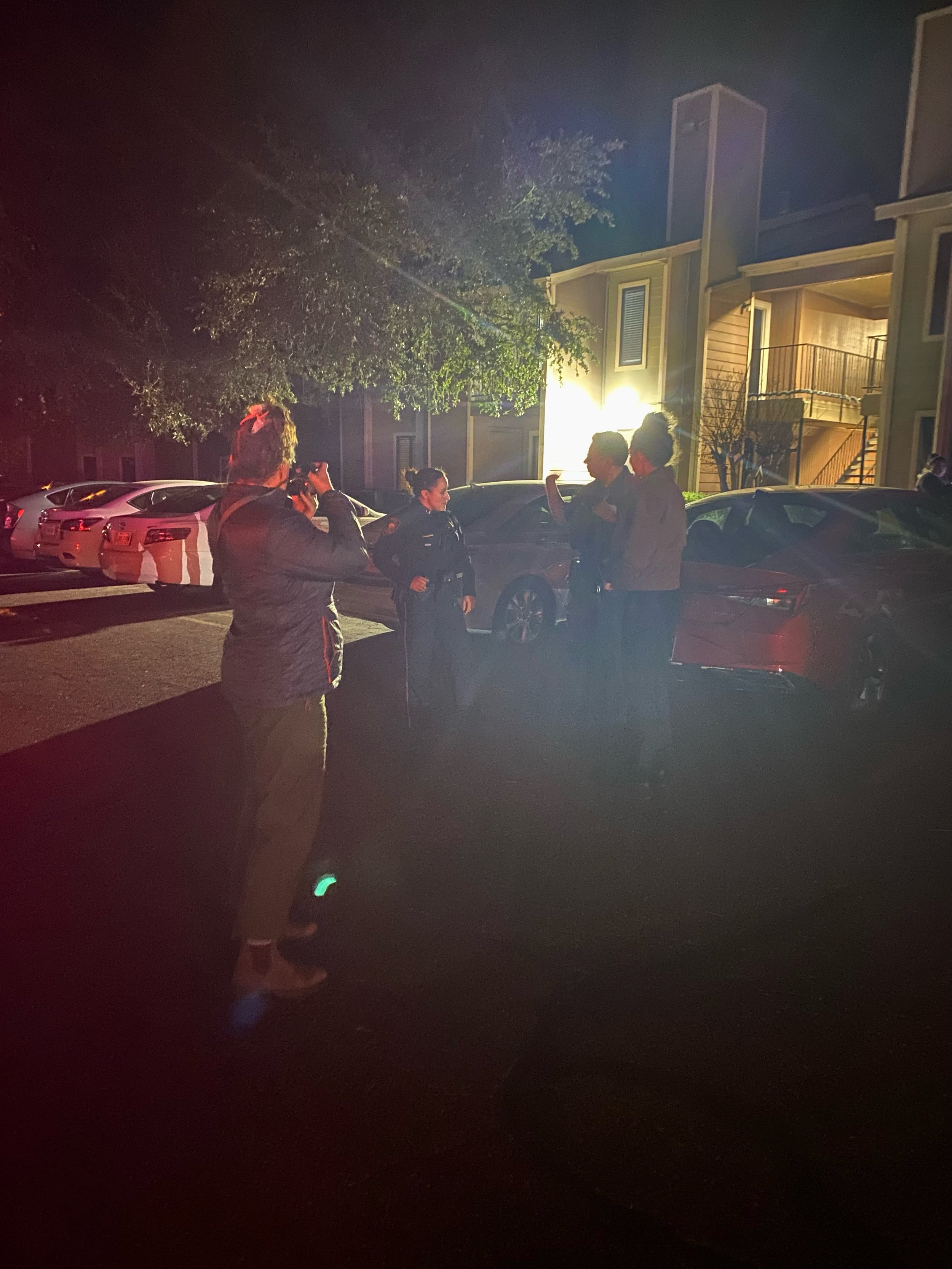2020
The Story
Wendy Gillis, a reporter with the Toronto Star, will cover the innovative ways cities in the United Kingdom and the United States are tackling violent crime.
“As violence in Canada has risen over the last decade, politicians have poured millions of dollars into policing, a move that may see short-term gains but fails to address the reasons people commit crime to begin with,” said Gillis. “Other cities have tackled this problem differently. They’ve not only relied on police, but they have taken a public health approach by treating crime as an illness that can be intercepted and prevented, not just treated after the fact.”
Some cities have recruited doctors, teachers and social workers to the cause. They have laid fewer charges and have offered jobs and housing opportunities instead. In some cases, these approaches have resulted in long-term reductions in crime.
The Travers Fellowship will allow Gillis to observe how this work is being done and report on its successes and challenges, all with an eye to what could be adopted in Canada.
Gillis was announced as the 2020 Fellowship recipient at an official luncheon in Ottawa on Jan. 9, 2020.
The Journalist
For more than five years, Wendy Gillis has covered crime and police issues for the Toronto Star. In 2016, she was part of a small team nominated for the Governor General's Michener Award for coverage of Ontario police watchdog, the Special Investigations Unit. She was also part of a group nominated for a Canadian Hillman prize for the Star's work on the police practice of carding. She was the recipient of a Canadian Mental Health Association's media award for her work on the police-shooting death of Andrew Loku.
In 2017, she was awarded a residency at the Banff Centre's Literary Journalism program, where she produced "Backfire," a long feature investigation into an Ontario police officer involved in three fatalities. Wendy has been sent to cover breaking news in French speaking regions and countries, including the 2016 terrorist attack in Brussels and the 2017 mosque shooting in Quebec City. She was nominated for an National Newspaper Award (NNA) in 2013 for her coverage of the Lac-Mégantic train disaster, and as part of a team for the Star's coverage of the 2018 Yonge St. van attack.
The Reporting
***We are proud to note that After George Floyd has been nominated for a Digital Publishing Award in the Best Feature Article: Long category***
Read After George Floyd, the first instalment of Wendy Gillis’ Fellowship project entitled Beyond the Badge. It was published by the Toronto Star on Feb. 24, 2023.
————————
Beyond the Badge, Part Two
————————
Beyond the Badge, Part Three
————————
And finally, click below to listen to Wendy Gillis discuss her reporting on This Matters, a daily news podcast from the Toronto Star.
This episode aired May 12, 2023.
The Reporter’s Notebook
I stepped outside Glasgow’s Queen Street train station to a bright September afternoon. As I set off to begin a week crammed with reporting, curiosity compelled me to the towering statue across the street, in George Square. As I approached, I had to crack a smile. Of all the historic figures it might have been, it was Sir Robert Peel, the former United Kingdom prime minister best known to Canadians as the father of modern policing.
I was in Scotland for my Travers project on policing, examining the profession internationally to inform the debate back home, amid a crisis of public trust. The coincidence of bumping into Peel, author of the famous principles that say “the police are the public, and the public are the police,” gave me that oddly distinct sense of being in the right place at the right time.
It was an especially welcome feeling considering, for a long while, I didn’t know when I’d be going anywhere for my Travers project.
Interviewing Scotland police during a Saturday night ride-along. Credit: Ian Georgeson
Two years before, I had been the lucky recipient of the fellowship at an unlucky time to embark on an international reporting project. In January 2020 I’d begun making travel arrangements, booking a trip to Japan to attend a United Nations conference on violence prevention, the thrust of my original Travers pitch. A trip to Glasgow to learn about the city’s remarkable reduction in homicides would come next. Then, by March of that year — well, you know what happened. Many things can ground a story. This was the grounding of planes due to a global pandemic.
I was learning arguably the most important lesson about international reporting, and journalism in general. All the preparation in the world can’t guarantee things will go as planned, so you need to be ready to pivot.
Listening to a youth worker in London discuss safety programs operated by the city's violence reduction unit, inspired in part by Glasgow's innovative program. Credit: Ben Turner
In May 2020, my project on hiatus, George Floyd was murdered by a Minneapolis police officer, inspiring a global reckoning over deadly racism in policing. His killing sent millions into the streets, their signs bearing the words that defined the movement: Defund The Police. The phrase is broadly understood as a call to radically transform public safety — to move away from a system that sees armed officers responding to all manner of social problems, and towards something altogether different.
For well over a year, I monitored COVID-19 numbers and watched international travel advisories with an eye to resuming my Travers reporting, feeling all the while that I could no longer embark on a series looking only at violence prevention. Any project about public safety now had to factor in the world-shifting events of Floyd’s murder and contend with the ideas, brought from the margins to the mainstream, about transforming or even abolishing police.
Taking in a memorial for Aniya Allen, a six-year-old girl fatally shot in Minneapolis in 2021, with her grandfather and community safety advocate K.G. Wilson. Credit: Tim Evans
As I researched how cities had responded to the Defund the Police movement, I realized I wanted to go back to where it all began. I reconfigured my Travers project to have, at its centre, an in-depth look of Minneapolis after George Floyd. I would zoom in on the city’s progress and set-backs on its path to reconfigure public safety and show how hard systemic change can be anywhere, even in the birthplace of a movement. The opportunity to do this reporting — journalism that picks up the story long after the TV trucks have moved on — is rare, not just because of tighter newsroom budgets but significant time constraints. Among the gifts of this fellowship is getting the space and resources to tell a different kind of story.
I would then approach my Scotland piece with a focus on its public health model — an all-hands-on-deck approach to safety that was even more relevant amid the Defund The Police reckoning — and find another policing story on efforts to address racism and deadly use of force in policing, leading to a Texas-based article on the push for more women officers.
Photojournalist Ilana Panich-Linsman capturing Waco police amid a search for a missing five-year-old boy. Credit: Wendy Gillis
For all of these pieces, the fieldwork was varied — from police rides-alongs and protests to memorials and in-depth interviews. In some cases this was the result of months of negotiating access and building trust. In many others, though, it was by staying flexible and changing course when carefully laid plans imploded or something better came along.
After being pushed off for months, for instance, Minneapolis granted me a police ride-along with little notice after I inquired once in town (never underestimate the power of being on the ground). A disastrous early snowfall one day disrupted an outdoor video shoot, so we moved the interview to the professor’s office where his decor elicited personal stories, including about the lamp on his desk that he’d bought in prison so he could read. There’s also the luck factor: while I was in Minneapolis, it happened to be George Floyd’s birthday. I abandoned prior plans and headed to a memorial birthday party where I met family members I’d been trying in vain to contact from afar.
All this to say, my advice to those embarking on the Travers fellowship, or any reporting project, is to anticipate and embrace the set-backs that will come and to be flexible while out in the field.
The product of my Travers reporting, Beyond the Badge, looks different from the series I pitched in 2020. Who knows where that original plan would have taken me in the alternate universe where there’s no pandemic. But I am grateful that the hurdles allowed me to broaden the scope of my project to include reporting on systemic racism in policing and produce journalism that takes seriously the growing calls to reimagine what modern public safety looks like.
Say Their Names Cemetery, a moving tribute to people killed by police that remains in place in a Minneapolis park years after George Floyd's murder. Credit: Tim Evans












